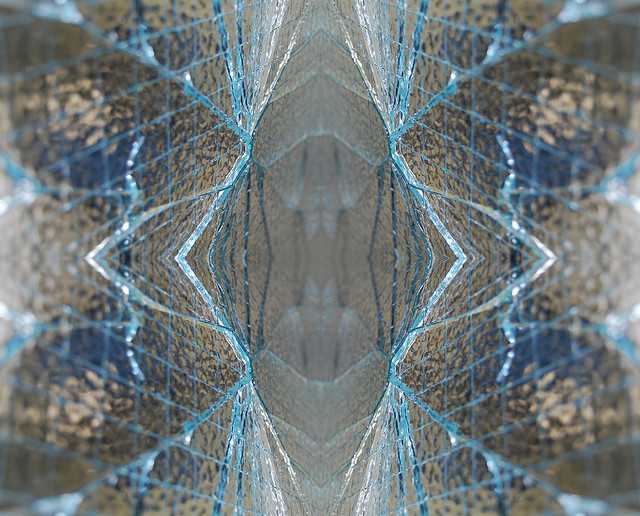FWP:
SETS == MIDPOINTS
IDOL: {8,1}
MIRROR: {8,3}
Theologically speaking, Faruqi is surely right to refer to {20,10}, and in general his preference for (2a) over (2b) makes sense to me, though I wouldn't rule (2b) out entirely, since a verse like this is obviously not designed to be entirely clear or straightforward.
The only other reference in the divan to an 'idol with a mirror-forehead' occurs in {208,6}, and in that case too the interpretation seems very possibly to go along the lines Faruqi suggests.
The verse is also full of sonorous long vowels, especially aa and ii . The yaktaa))ii in the first line and aa))inah-siimaa in the second line echo each other ( aa))iinah is shortened to aa))inah for metrical convenience). And there's the wordplay of siimaa and ruu-baruu .
But it's a truly strange verse, isn't it? An obscure, mysterious, potent image, that of the 'idol with a mirror-face' (or 'mirror-forehead'). Beautiful, ominous, solipsistic, hypnotically powerful-- what kind of 'idol' or beloved would earn such an epithet? I even sense a little overtone of doubt in the first line-- 'all' accept her/his uniqueness, but does the 'all' include the speaker? It's almost the kind of thing one says before making a counterargument or offering a challenge. Does the second line suggest that such a face-to-face confrontation just contingently hasn't happened-- that is, it hasn't happened yet?
Compare the similar absence of a face-to-face encounter in
{32,1}.

Nazm:
That is, no one confronted [them/you]. (23)
== Nazm page 23